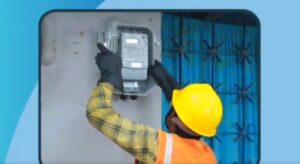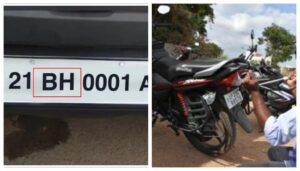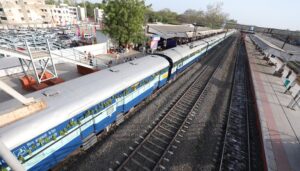Chief Minister Nitish Kumar Boosts Electric Mobility in Bihar with Procurement of 2 Electric Cars in EV Conclave
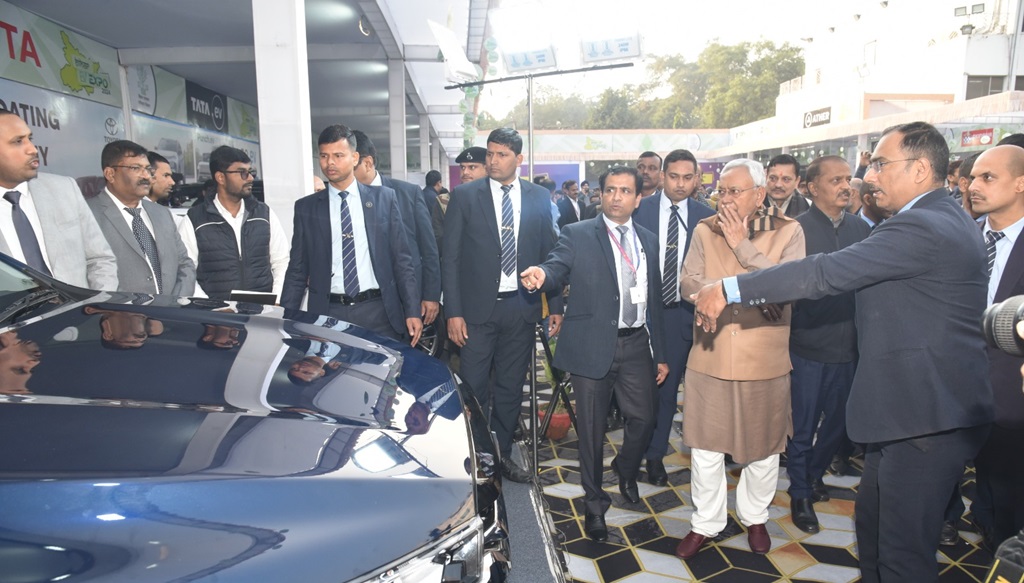
PATNA: In a significant move towards promoting sustainable and eco-friendly transportation in Bihar, Chief Minister Nitish Kumar announced the procurement of two electric cars during the Bihar Electric Vehicle (EV) Conclave and Expo held in Patna on Thursday.
The Chief Minister, who has been personally using an EV since 2019, made the announcement during his visit to the expo organized alongside the conclave. The event was organized by the Bihar Transport Department in collaboration with WRI India and the Bihar State Pollution Control Board (BSPCB).
During his visit, CM Nitish actively engaged with the showcased EVss, seeking detailed information about their features and capabilities. In particular, he inquired about the range of the vehicles on a single charge, expressing his satisfaction with the cutting-edge technologies incorporated into the latest models of EVs.
Impressed with the performance and eco-friendly attributes of the electric SUVs, the Chief Minister instructed the officials concerned to initiate the procurement process for two EVs.
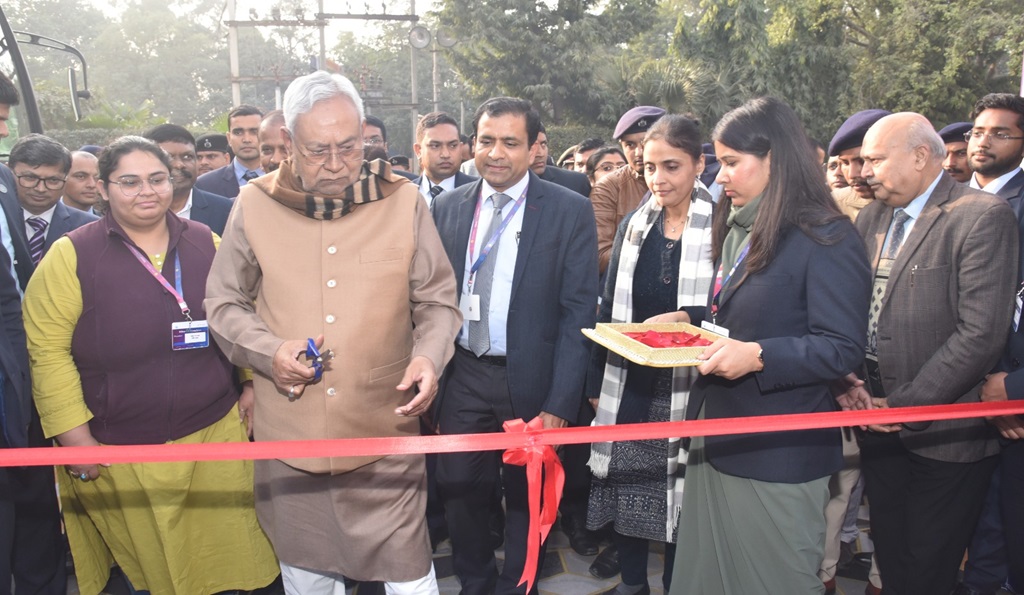
Speaking on the sidelines of the expo, the Chief Minister emphasized the environmental benefits of EVs and highlighted ongoing efforts to develop infrastructure for convenient public charging facilities. He urged the public to explore the advantages of EVs, emphasizing their role in environmental conservation.
The Bihar Electric Vehicle Conclave, organized by the Bihar transport department in collaboration with WRI India and Bihar State Pollution Control Board, featured an impressive expo and panel discussions on various aspects of electric mobility. The panel discussions included senior officials from central and state governments, foreign diplomats, sectoral experts, and EV manufacturers.
Transport Minister Sheela Kumari inaugurated the conclave and emphasized the collective efforts required to achieve a pollution-free state. She highlighted the ongoing initiatives of the transport department to reduce vehicle-borne pollution and encouraged the purchase of EVs and the establishment of charging stations under the Bihar Electric Vehicle Policy.
Chief Secretary Amir Subhani called upon all departments, EV manufacturing firms, and charging agencies to take the initiative in setting up EV charging stations in the state. Transport Secretary Sanjay Kumar Agarwal emphasized the need to develop an ecosystem for promoting EVs, citing the success of the Bihar EV Policy.
“The share of EVs among total new vehicle registrations was 7% in 2023, exceeding the national average of 6%. With Bihar EV Policy offering purchase incentives and exemption in motor vehicle tax and provisions for robust charging infrastructure, the EV penetration in the state is set to meet the target of 15% well within the set timeframe of 2028,” the transport secretary said.
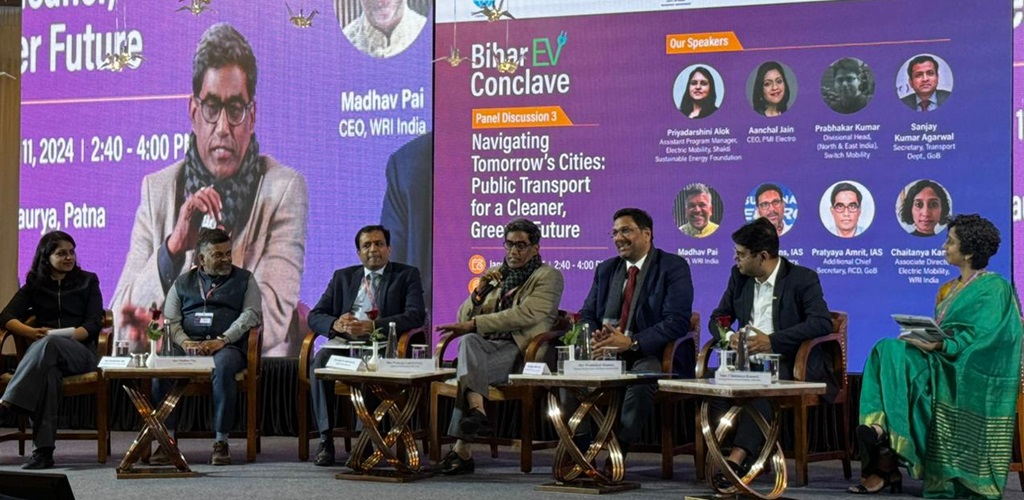
Development Commissioner Vivek Kumar Singh stressed the importance of making EVs accessible to the common people, advocating for EVs to be seen as substitutes rather than supplements.
Madhavi Pai, CEO of WRI India, discussed the potential improvements in transport system efficiency through digitalization and demand aggregation. “Digitalisation of the system can hugely improve the transport system efficiency in states. Demand aggregation can bring about 30% reduction in cost and help scale the adoption of e-buses.
Open data repositories are critical to improve the transport infrastructure as they can help us improve transport infrastructure planning to meet growing demand. Ease of financing is another critical component that can help states in creating an enabling marketplace for public transportation.”
Sudhendu Jyoti Sinha, Adviser at NITI Aayog, highlighted the rapid increase in the number of vehicles in the country and Bihar. He suggested several measures to promote electric mobility, including implementing aggressive electric mobility initiatives in 2-3 cities and encouraging a few schools to switch to electric buses initially.
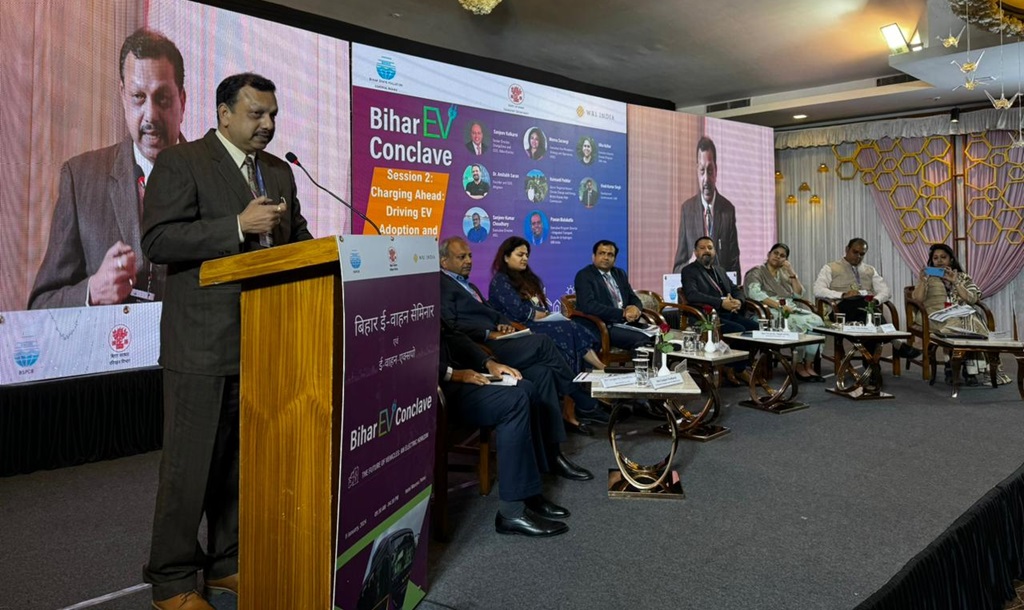
Deputy High Commissioner to East and North East India at the British High Commission, Dr. Andrew Fleming, expressed optimism about Bihar emerging as a beacon for the transition to EVs and emphasized the potential for a long-term UK-Bihar partnership.
Secretary of Environment, Forest, and Climate Change, Bandana Preyashi, discussed the environmental benefits of transitioning from Internal Combustion Engine (ICE) vehicles to EVs, citing the reduction in greenhouse gas emissions.
Ulka Kelkar, Executive Director, Climate, WRI India emphasized the role of EVs in curbing emissions, tackling climate change, and creating sustainable livelihood opportunities. Transition to EVs will be more sustainable if it is driven by renewable energy. EVs also offer several social benefits, such as the affordability of electric buses in public transportation. Additionally, electric mobility can create livelihood opportunities, including jobs in the manufacturing of automobile components.”
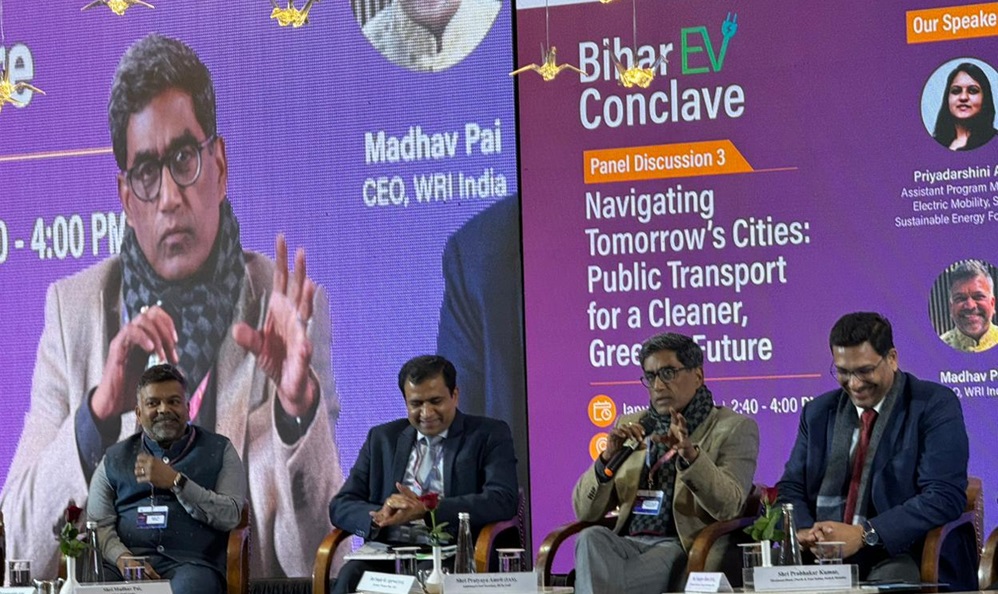
S. Chandrasekar, Member Secretary of the BSPCB, said the impact of the increase in EVs in Bihar has started to be felt, as the Air Quality Index (AQI) in Patna did not cross 400 this winter season.
Pawan Mulukutla highlighted Bihar’s dedication to decarbonize its rapidly growing transport sector with the robust EV policy adopted in December 2023.
In conclusion, Saransh Bajpai, Associate Director at WRI India, emphasized that Bihar is on the verge of an electric mobility revolution. “The state’s trajectory towards becoming a national leader in electric vehicle adoption is propelled by robust government support, as reflected in the visionary Bihar EV Policy, and bolstered by the increasing awareness among consumers,” he said.

